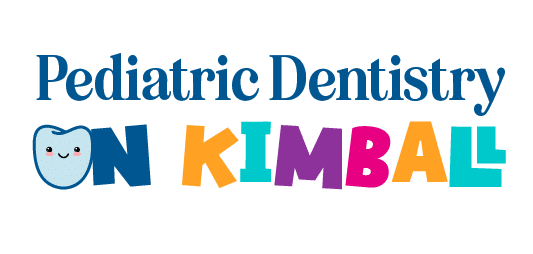Your child’s first teeth are more than just placeholders for their permanent smile—they play a crucial role in their development. From chewing and speaking to ensuring proper alignment of adult teeth, baby teeth set the stage for a lifetime of oral health. At Pediatric Dentistry on Kimball, we’re dedicated to creating positive, anxiety-free dental experiences for children in Brooklyn, NY, while empowering parents with the knowledge they need to care for their little one’s smile.
In this guide, we’ll answer the most common questions parents have about baby teeth, including why they matter, how to care for them, and when your child should see the dentist.
Why Are Baby Teeth Important?
Baby teeth, also known as primary teeth, do much more than give your child an adorable smile. These teeth:
- Help children chew properly, aiding in nutrition.
- Assist in the development of clear speech.
- Hold space for permanent teeth, guiding them into the correct position.
Neglecting baby teeth can lead to oral health issues that affect permanent teeth. Healthy baby teeth create a strong foundation for your child’s overall well-being.
Do Baby Teeth Matter If They’re Going to Fall Out?
It’s a common misconception that baby teeth aren’t important because they eventually fall out. The reality is, untreated problems with baby teeth can cause:
- Pain and Discomfort: Cavities or infections can be painful for your child.
- Infection Risk: Decay can spread, potentially affecting developing permanent teeth.
- Speech or Alignment Issues: Premature loss of baby teeth can lead to misaligned permanent teeth or speech delays.
Taking care of baby teeth now prevents complications later.
The Lifespan of Baby Teeth
Baby teeth begin erupting around six months old and can remain in the mouth until the teenage years. Here’s a general timeline:
- 6–12 Months: Lower front teeth usually appear first.
- 3 Years Old: Full set of 20 baby teeth.
- 6–12 Years Old: Baby teeth gradually fall out as permanent teeth erupt.
Some molars may stay until your child is 12 or older, showing just how critical their care is over the years.
Why Should Cavities in Baby Teeth Be Treated?
Ignoring cavities in baby teeth can have long-lasting effects.
H3: Risks of Untreated Cavities in Baby Teeth
- Pain and Infections: Decay can lead to abscesses and serious discomfort.
- Damage to Permanent Teeth: Infection in baby teeth may harm developing adult teeth.
- Difficulty Eating and Speaking: Poor dental health affects basic functions like chewing and articulation.
Dr. Vera and the team at Pediatric Dentistry on Kimball use a gentle, anxiety-free approach to ensure cavities are treated promptly and effectively, keeping your child’s smile healthy and pain-free.
Preventing Cavities in Baby Teeth
Good oral hygiene starts early.
Early Dental Care Tips for Parents
- Begin brushing with a soft toothbrush as soon as the baby’s first tooth appears.
- Use a smear of fluoride toothpaste for children under 3 and a pea-sized amount for older kids.
- Clean gums with a damp cloth before teeth erupt.
- Avoid putting your baby to bed with a bottle, as sugary liquids can lead to decay.
When to Schedule Your Child’s First Dental Visit
Experts recommend bringing your child to the dentist by their first birthday or when their first tooth appears. This initial visit helps establish a positive relationship with the dentist and ensures early detection of potential issues.
Common Baby Teeth Issues and How to Prevent Them
Teething Discomfort
Signs of teething include drooling, irritability, and a desire to chew on objects. To ease discomfort:
- Offer cold teethers or a clean, wet washcloth.
- Gently massage your child’s gums with a clean finger.
Baby Bottle Tooth Decay
This condition occurs when sugary liquids coat your child’s teeth, often from prolonged bottle use. Prevent decay by:
- Filling bedtime bottles with water instead of milk or juice.
- Wiping your child’s gums and teeth after feeding.
Thumb Sucking and Pacifier Use
While these habits are natural for young children, prolonged use can affect dental alignment. Tips to reduce impact:
- Gradually wean your child off pacifiers and thumb-sucking by age 3.
- Use positive reinforcement to encourage your child to stop.
Building Lifelong Healthy Habits
At Pediatric Dentistry on Kimball, we believe in empowering families to build healthy habits early. To help your child develop a love for dental care:
- Teach proper brushing and flossing techniques in a fun and engaging way.
- Maintain regular dental visits to reinforce the importance of oral health.
- Encourage a positive attitude by celebrating milestones like cavity-free checkups.
Our team is committed to educating young patients and fostering a lifetime of healthy smiles.
Trust Brooklyn’s Pediatric Dental Experts
Baby teeth are the foundation of your child’s lifelong oral health. At Pediatric Dentistry on Kimball, we provide gentle, anxiety-free care that helps children and parents alike feel confident in their dental journey. Our focus on education, positivity, and early care ensures that your child’s smile is protected every step of the way.
Schedule your child’s first visit today with Pediatric Dentistry on Kimball in Brooklyn, NY. Contact us online, by phone, or via email to give your child the best start to a healthy, happy smile!

Dr. Lionel Vera
Dr. Lionel Vera brings warmth, expertise, and advocacy to Pediatric Dentistry on Kimball as a board-certified pediatric dentist. He earned his dental degree from the University of Puerto Rico, Medical Science Campus, followed by a residency at Kingsbrook Jewish Medical Center, where he honed his skills with children and special needs patients. A Brooklyn-based pediatric dentist since 2018, Dr. Vera blends compassionate care with a strong focus on educating both children and parents about oral health. Dr. Vera’s mission: to inspire a lifetime of healthy smiles through trust, education, and proactive care.

